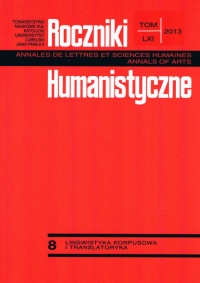Some Notes on Legal Translation Based on a Parallel Corpus: The New Fundamental Law of Hungary and its Translation in French
Abstract
The present study investigates the characteristics of legal translation based on the analysis of a parallel corpus composed of the new Fundamental Law of Hungary and its official translation in French. The aim of this article is to compare and contrast the two texts, to analyse the usage of certain historically and culturally bound Hungarian legal terms and to identify to what extent French terms can be considered equivalents of Hungarian ones. This study came to the conclusion that in most cases French terms are only partial equivalents, unable to convey the complex, sometimes symbolic, socio-cultural meaning related to Hungarian terms.
References
Bárdosi Vilmos & Trócsányi László, 2001, Magyar-francia-magyar jogi szótár, Budapest, KJK-KERSZÖV Jogi és Üzleti Kiadó.
Dullion Valérie, 2000, « Du document à l’instrument: les fonctions de la traduction des lois » [in :] La traduction juridique : histoire, théorie(s) et pratique, Berne/Genève, ASTTI/ETI, 233-253.
Gémar Jean-Claude, 2002, « Le plus et le moins-disant culturel du texte juridique. Langue, culture et équivalence » [in:] Meta : journal des traducteurs 47/2, 163-176.
Gémar Jean-Claude, 2007, « Traduire le droit ou le double langage de Thémis » [in :] HERMÈS, 49, 149-155.
Guinchard Serge & Montagnier Gabriel [éds.], 1990, Lexique de termes juridiques, Paris, Dalloz.
Harvey Malcolm, 2006, « Stratégies d’équivalence en traduction juridique, ou le traducteur comme interface » [in :] Greenstein, R. [éds.] Langues et cultures : une histoire d’interface, Paris, Publications de la Sorbonne, 105-113.
Monjean-Decaudin Sylvie, 2010, « Territorialité et extraterritorialité de la traduction du droit » [in :] Meta : journal des traducteurs 55/4, 693-711.
Copyright (c) 2013 Roczniki Humanistyczne

This work is licensed under a Creative Commons Attribution-NonCommercial-NoDerivatives 4.0 International License.





